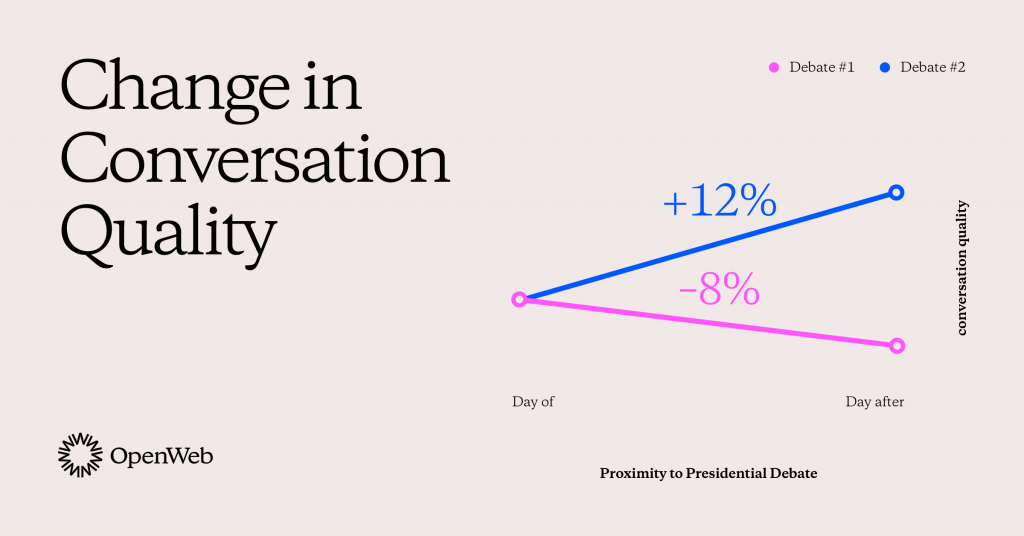The first presidential debate and the final presidential debate were like night and day.
In the first, we witnessed both candidates yelling over each other right out of the gate. There was name-calling, countless interruptions, and very little productive conversation about policy. Not a great look for America.
The second debate came with a mute button and stricter rules around the format (most of which were actually enforced). As a result, we saw a much more civilized conversation.
So, how much were public online conversations impacted by each?

At OpenWeb, we routinely collect user feedback across publishers to assess the quality of their conversations. After debate #1, users reported an 8% decrease in quality conversations. According to Merriam Webster, terms like white supremacy and racism were trending post-debate. Not surprisingly, the toxicity we saw between the two candidates was mirrored in public conversations.
But after the second debate (the one with the mute button), we observed a 12% increase in quality conversations across those same top news publishers. The relative civility we witnessed between the candidates was reflected in the conversations that people had about them.
For publishers, this is a valuable lesson: the quality of your content can impact the quality of the conversations within your community. During election season, when emotions run high and the news cycle is full of salacious gossip, it’s hard to imagine how you can drive high- quality conversations – but it’s possible.
How publishers can drive high-quality conversations during election season
Do give real-time news updates from journalists in the field. Your readers deserve to stay informed, and timing is everything during election season.
Don’t ignore feedback from your community. Journalists should join conversations and respond accordingly.
Do highlight productive, thoughtful comments. This creates a deeper connection with your readers and encourages others to do the same.
Don’t create barriers between readers and experts. Make it as easy as possible for readers to engage, ask questions, and get the information they need from journalists and experts.
Want to learn more best practices around driving high-quality conversations during election season? Download our guide.


